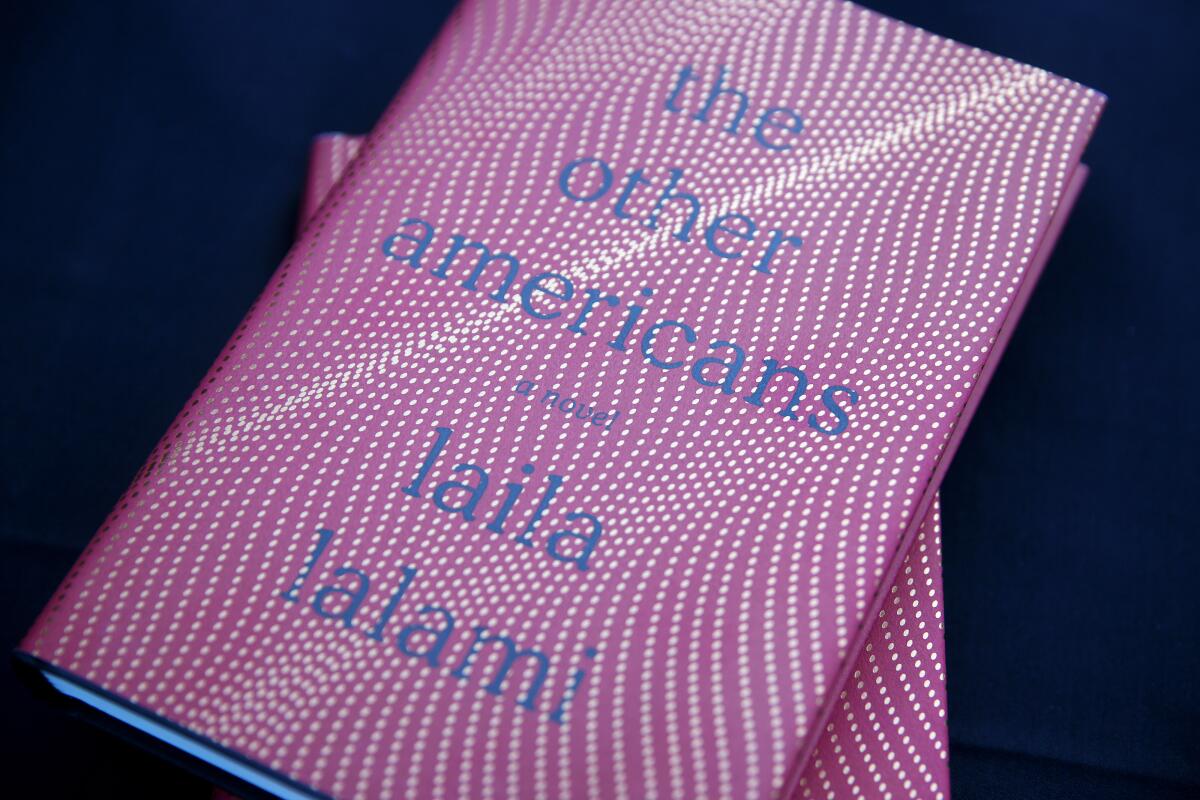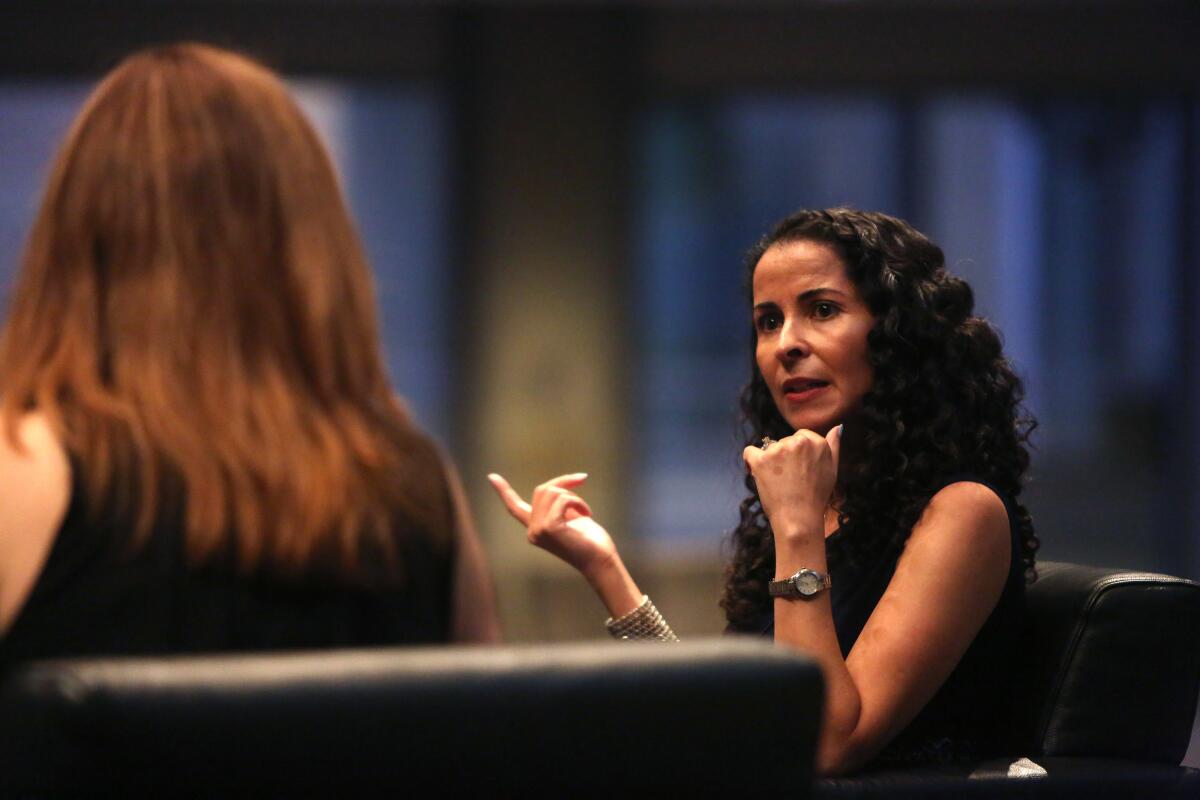Author Steph Cha on recognizing ‘the others’ on the page

- Share via
I grew up in Southern California, both a child of immigrants and a hungry reader, my tastes guided by what I’d read already — mostly schoolbooks, with the occasional novel my mother brought home from Costco.
As I crunched my way through the American canon, I must have developed an appetite for stories about white men overcoming adversity. It took many, many years for me to question what and who were missing from these stories, even though the answer was always anything and anyone that reflected my own experience.
It is a victory for many Americans to have Laila Lalami’s “The Other Americans” chosen as a finalist for the National Book Awards.
A rich, multilayered work, Lalami’s most recent novel bares the soul of a small town in the Mojave Desert by exploring the lives of its residents — both immigrant and native — all connected by the death of Driss Guerraoui, a Moroccan immigrant killed in a hit-and-run outside of his restaurant. The restaurant, an American diner called the Pantry (“What could be more American than that?”), was the culmination of Driss’ American success story. This success was hard-earned after his first business, a doughnut shop, was burned down after 9/11 — a crime that changed his American-born daughter Nora’s view of her family’s place in her native country.
Lalami, born in Rabat, Morocco, and a longtime resident of Los Angeles and Santa Monica, captures the essence of the Southern California I know, one defined by both cultural coexistence and collision.

“The Other Americans,” a Los Angeles Times Book Club selection in July, is told almost entirely in the first person. It combines the points of view of nine distinct narrators — among them the members of the Guerraoui family; a white police officer and old friend of Nora’s; an undocumented Mexican immigrant who witnesses Driss’ killing and chooses not to report it; a black D.C. transplant detective tasked with solving the case; and a white bowling alley owner who resents the changes in his town. These voices come together to form a symphonic representation of life in this desert community, its rhythms and textures, its warmth and hopes and fears and animosities.
With elegant prose and emotional clarity, Lalami inhabits the minds of all of her characters. She does this in a way that is both empathetic and unsparing, showing the weakness, the failure, the humanity in each narrator, while never cutting the cord between author and creation, the one that allows a fictional being to breathe on paper.
This is a book about the “other” Americans. The challenge is there from the front cover onward, to consider who is and who is not “other.” Lalami doesn’t offer an explicit answer, but her novel illustrates a harsh yet lovely truth — that every American, for better and worse, is “other” to other Americans.
Nora, who carries much of the book, is American and Muslim and Moroccan, treated as the “other” by classmates and neighbors, and she stands out against the landscape of American publishing, the white-heavy tradition of the Great American Novel.


As a native Angelena born to Korean immigrants who sort of understand my creative career, I related most to Nora, a jazz composer who is enjoying champagne at a trendy bistro in Oakland when she receives the news of her father’s death. The book’s white veteran turned police officer was much more exotic to me, but Lalami painted him with such grace and attention to detail that I found it easy to connect with him too.
If you believe that America’s character comes from its diverse origins, the folding of countless unique people and communities into one unwieldy, flawed, glorious phenomenon of a country, then this universal otherness may be an exquisite thing.
In “The Other Americans,” Lalami shows both the danger and the promise of the American experiment, the kaleidoscopic effect of disparate lives coming together.
Steph Cha’s latest book is “Your House Will Pay,” a crime novel published in October.
More to Read
Sign up for our Book Club newsletter
Get the latest news, events and more from the Los Angeles Times Book Club, and help us get L.A. reading and talking.
You may occasionally receive promotional content from the Los Angeles Times.










